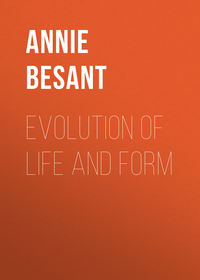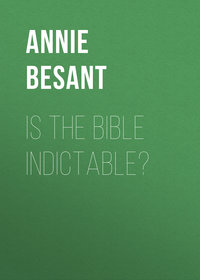 полная версия
полная версияMarriage, As It Was, As It Is, And As It Should Be
If a wife be separated from her husband, either by deed or by judicial decree, she has no remedy for injury or for libel, unless by the doubtful plan of using her husband's name without his consent. On this injustice Lord Lyndhurst, speaking in the House of Lords in 1856, said: "A wife is separated from her husband by a decree of the Ecclesiastical Court, the reason for that decree being the husband's misconduct – his cruelty, it may be, or his adultery. From that moment the wife is almost in a state of outlawry. She may not enter into a contract, or if she do, she has no means of enforcing it. The law, so far from protecting, oppresses her. She is homeless, helpless, hopeless, and almost wholly destitute of civil rights. She is liable to all manner of injustice, whether by plot or by violence. She may be wronged in all possible ways, and her character may be mercilessly defamed; yet she has no redress. She is at the mercy of her enemies. Is that fair? Is that honest? Can it be vindicated upon any principle of justice, of mercy or of common humanity?"
A married woman loses control over her own body; it belongs to her owner, not to herself; no force, no violence, on the husband's part in conjugal relations is regarded as possible by the law; she may be suffering, ill, it matters not; force or constraint is recognised by the law as rape, in all cases save that of marriage; the law "holds, it to be felony to force even a concubine or harlot" (Broom's "Commentaries," vol. iv., p. 255), but no rape can be committed by a husband on a wife; the consent given in marriage is held to cover the life, and if – as sometimes occurs – a miscarriage or premature confinement be brought on by the husband's selfish passions, no offence is committed in the eye of the law, for the wife is the husband's property, and by marriage she has lost the right of control over her own body. The English marriage law sweeps away all the tenderness, all the grace, all the generosity of love, and transforms conjugal affection into a hard and brutal legal right.
By the common law the husband has a right to inflict corporal punishment on his wife, and although this right is now much restricted, the effect of the law is seen in the brutal treatment of wives among the rougher classes, and the light – sometimes no – punishment inflicted on wife-beaters. The common law is thus given by Blackstone: "The husband also (by the old law) might give his wife moderate correction. For as he is to answer for her misbehaviour, the law thought it reasonable to entrust him with this power of restraining her, by domestic chastisement, in the same moderation that a man is allowed to correct his apprentices or children. The lower rank of people, who were always fond of the old common law, still claim and exert their ancient privilege." Blackstone grimly adds, after saying this is all for woman's protection: "So great a favourite is the female sex of the laws of England" (444 and 445). This "ancient privilege" is very commonly exercised at the present time. A man who dragged his wife out of bed (1877), and, pulling off her nightdress, roasted her in front of the fire, was punished (?) by being bound over to keep the peace for a short period. Men who knock their wives down, who dance on them, who drag them about by the hair, &c., are condemned to brief terms of imprisonment, and are then allowed to resume their marital authority, and commence a new course of ill-treatment. In dealing later with the changes I shall recommend in the marriage laws, this point will come under discussion.
Coming to the second "right," of "personal liberty," we find that a married woman has no such right. Blackstone says, as we have seen: "the confinement of a person in any wise is an imprisonment So that the keeping a man against his will in a private house… is an imprisonment" (p. 136). But a husband may legally act as his wife's gaoler; "the courts of law will still permit a husband to restrain his wife of her liberty, in case of any gross misbehaviour" (Blackstone, p. 445). "If the wife squanders his estate, or goes into lewd company, he may deprive her of liberty" (Comyn's Digest, under "Baron and Feme"). Broom says that at the present time "there can be no question respecting the common-law right of a husband to restrain his wife of her personal liberty, with a view to prevent her going into society of which he disapproves, or otherwise disobeying his rightful authority; such right must not, however, be exercised unnecessarily, or with undue severity: and the moment that the wife by returning to her conjugal duties, makes restraint of her person unnecessary, such restraint becomes unlawful" (vol. i, p. 547). In the year 1877 a publican at Spilsby chained up his wife to the wall from one day to the afternoon of the following one, in order, he said, to keep her from drink; the magistrates dismissed him without punishment. It may be argued that a woman should not get drunk, go into bad company, &c. Quite so; neither should a man. But would men admit, that under similar circumstances, a wife should have legal power to deprive her husband of liberty? If not, there is no reason in justice why the husband should be permitted to exercise it. Offences known to the law should be punished by the law, and by the law alone; offences which the law cannot touch should entail no punishment on an adult at the hands of a private individual. Public disapproval may brand them, but no personal chastisement should be inflicted by arbitrary and irresponsible power.
The third right, of "property," has also no existence for married women. Unmarried women have here no ground for complaint: "A feme sole, before her marriage, may do all acts for disposition, etc., of her lands or goods which any man in the same circumstances may do" (Comyn's Digest, under "Baron and Feme"). The disabilities which affect women as women do not touch property; a feme sole may own real or personal estate, buy, sell, give, contract, sue, and be sued, just as though she were of the "worthier blood;" it is marriage that, like felony and insanity, destroys her capability as proprietor. According to the common law – with which we will deal first – the following results accrued from marriage: —
"Whatever personal property belonged to the wife before marriage, is by marriage absolutely vested in the husband… in chattel interests, the sole and absolute property vests in the husband, to be disposed of at his pleasure, if he chooses to take possession of them" (Blackstone, book ii. 443). If he takes possession, they do not, at his death, revert to the wife, but go to his heirs or to anyone he chooses by will. "If a woman be seized of an estate of inheritance, and marries, her husband shall be seized of in her right" (Comyn's Digest, under "Baron and Feme"). If a woman own land in her own right, all rents and profits are not hers, but her husband's; even arrears of rents due before coverture become his; he may make a lease of her land, commencing after his own death, and she is barred, although she survive him; he may dispose of his wife's interest; it may be forfeited by his crime, seized for his debt; she only regains it if she survives him and he has not disposed of it. If a woman, before marriage, lets her land on a lease, the rental, after marriage, becomes her husband's, and her receipt is not a good discharge. If a wife grants a rent-charge out of her own lands (or, rather, what should be her own) without the husband's consent, it is void. All personal goods that "the wife has in possession in her own right, are vested in her husband by the marriage" (Ibid); gifts to her become his; if he sues for a debt due to his wife, and recovers it, it is his; if a legacy be left her, it goes to him; after his death, all that was her personal property originally, goes to his executors and administrators, and does not revert to her; so absolutely is all she may become possessed of his by law that if, after a divorce a mensâ et thoro, the wife should sue another woman for adultery with her husband, and should be awarded her costs, the husband can release the woman from payment.
If a woman own land and lease it, then if, during marriage, the husband reduce it into possession, "as where rent accruing on a lease granted by the wife dum sola is received by a person appointed for that purpose during the husband's life," under such circumstances the husband's "executors, not his widow, must sue the agent" (Lush's "Common Law Practice," 2nd. ed., p. 27). In a case where "certain leasehold property was conveyed to trustees upon trust to permit the wife to receive the rents thereof to her sole and separate use, and she after marriage deposited with her trustees part of such rents and died; it was held that her husband might recover the same in an action in his own right. Such money, so deposited, was not a chose in action belonging to the wife, but money belonging to the husband, the trust having been discharged in the payment of the rents to the wife" (Ibid, p. 9 7 ). Marriage, to a man, is regarded as a kind of lucrative business: "The next method of acquiring property in goods and chattels is by marriage; whereby those chattels, which belonged formerly to the wife, are by act of law vested in the husband, with the same degree of property, and with the same powers, as the wife, when sole, had over them… A distinction is taken between chattels real and chattels personal, and of chattels personal, whether in possession or reversion, or in action. A chattel real vests in the husband, not absolutely, but sub modo. As, in case of a lease for years, the husband shall receive all the rents and profits of it, and nay, if he pleases, sell, surrender, or dispose of it during the coverture; if he be outlawed or attainted, it shall be forfeited to the king; it is liable to execution for his debts; and if he survives his wife, it is to all intents and purposes his own. Yet, if he has made no disposition thereof in his lifetime, and dies before his wife, he cannot dispose of it by will: for, the husband having made no alteration in the property during his life, it never was transferred from the wife; but after his death she shall remain in her ancient possession, and it shall not go to his executors. If, however, the wife die in the husband's lifetime, the chattel real survives to him. As to chattels personal (or choses) in action, as debts upon bonds, contracts, and the like, these the husband may have if he pleases; that is, if he reduces them into possession by receiving or recovering them at law. And upon such receipt or recovery they are absolutely and entirely his own; and shall go to his executors or administrators, or as he shall bequeath them by will, and shall not revest in the wife. But, if he dies before he has recovered or reduced them into possession, so that, at his death, they still continue choses in action, they shall survive to the wife; for the husband never exerted the power he had of obtaining an exclusive property in them. If the wife die before the husband has reduced choses in action into possession, he does not become entitled by survivorship; nevertheless, he may, by becoming her administrator, gain a title. Chattels in possession, such as ready money and the like, vest absolutely in the husband, and he may deal with them, either whilst living, or by his will, as he pleases. Where the interest of the wife is reversionary, the husband's power is but small; unless it falls into possession during the marriage, his contracts or engagements do not bind it" ("Comm, on the Laws of England," Broom and Hadley, vol. ii., pp. 618, 619). So highly does the law value the claims of a husband that it recognizes them as existing even before marriage; for if a woman who has contracted an engagement to marry dispose of her property privately, settle it on herself, or on her children, without the cognizance of the man to whom she is engaged, such settlement or disposition may be set aside by the husband as a fraud.
So cruel, as regards, property, was felt to be the action of the common law, that the wealthy devised means to escape from it, and women of property were protected on their marriage by "marriage settlements," whereby they were contracted out of the law. A woman's property was by this means, "settled on herself;" it was necessary to treat her as incapable, so her property was not in her own power but was vested in trustees for her separate use; thus che principal, or the estate, was protected, but the whole interest or rental, as before, could be taken by the husband the moment it was received by the wife; her signature became necessary to draw it, but the moment it came into her possession it ceased to be hers. The next step was an attempt to protect women's money in their own hands; terrible cases of wrong were continually arising: men who deserted their wives, and left them to maintain the burden of a family, came back after the wife had accumulated a little property, sold the furniture, pocketed the proceeds, and departed, leaving the wife to recommence her labours. Orders of protection were given by magistrates, but these were not found sufficient. At last, parliamentary interference was called for with an urgency that could no longer be resisted, and a Bill to amend the laws relating to married women's property was introduced into the House of Commons. How sore was the need of such amendment may be seen from the following extracts: —
Mr. Russell Gurney, in moving (April 14, 1869) the second reading of the Bill, observed: "It is now proposed that, for the first time in our history, the property of one half of the married people of this country should receive the protection of the law. Up to this time the property of a wife has had no protection from the law, or rather, he should say, in the eye of the law it has had no existence. From the moment of her marriage the wife, in fact, possesses no property; whatever she may up to that time have possessed, by the very act of marriage passes from her, and any gift or bequest made to her becomes at once the property of the husband. Nay, Even that which one might suppose to be her inalienable right, the fruit of her mental or bodily toil, is denied her. She may be gifted with powers which enable her to earn an ample fortune, but the moment it is earned, it is not hers,' it is her husband's. In fact, from the time of her entering into what is described as an honourable estate, the law pronounces her unfit to hold any property whatever."
Mr. Jessel (now Master of the Rolls) in seconding the motion, in the course of an able and impassioned speech, said: "The existing law is a relic of slavery, and the House is now asked to abolish the last remains of slavery in England. In considering what ought to be the nature of the law, we cannot deny that no one should be deprived of the power of disposition, unless on proof of unfitness to exercise that power; and it is not intelligible on what principle a woman should be considered incapable of contracting immediately after she has, with the sanction of the law, entered into the most important contract conceivable. The slavery laws of antiquity are the origin of the common law on this subject. The Roman law originally regarded the position of a wife as similar to that of a daughter who had no property, and might be sold into slavery at the will of her father. When the Roman law became that of a civilised people, the position of the wife was altogether changed… The ancient Germans – from whom our law is derived – put the woman into the power of her husband in the same sense as the ancient Roman law did. She became his slave. The law of slavery – whether Roman or English – for we once had slaves and slave-laws in England – gave to the master of a slave the two important rights of flogging and imprisoning him. A slave could not possess property of his own, and could not make contracts except for his master's benefit, and the master alone could sue for an injury to the slave; while the only liability of the master was that he must not let his slave starve. This is exactly the position of the wife under the English law; the husband has the right of flogging and imprisoning her, as may be seen by those who read Blackstone's chapter on the relations of husband and wife. She cannot possess property – she cannot contract, except it is as his agent; and he alone can sue if she is libelled or suffers a personal injury; while all the husband is compellable to do for her is to pay for necessaries. It is astonishing that a law founded on such principles should have survived to the nineteenth century."
A quotation from a later debate finds its fit place here: Mr. Hinde Palmer, in moving (February 19, 1873) the second reading of the Married Woman's Property Act (1870) Amendment Bill, pointed out that the common law was, that by marriage "the whole of a woman's personal property was immediately vested in her husband, and placed entirely at his disposal. By contracting marriage, a woman forfeited all her property. In 1868, the Chancellor of the Exchequer, Mr. Lowe, said: 'Show me what crime there is in matrimony that it should be visited by the same punishment as high treason – namely, confiscation, for that is really the fact.' Mr. Mill, too, speaking on that question, said that a large portion of the inhabitants of this country were in the anomalous position of having imposed on them, without having done anything to deserve it, what we inflicted on the worst criminals as a penalty: like felons, they were incapable of holding property."
Some great and beneficial changes were made by the Acts of 1870 and 1873, although much yet remains to be done. By the Act of 1870, the wages and earnings of married women were protected; they were made capable of depositing money in the savings' banks in their own names; they might hold property in the Funds in their own names, and have the dividends paid to them; they might hold fully-paid up shares, or stock, to which no liability was attached; property in societies might be retained by them; money coming to a married woman as the next-of-kin, or one of the next-of-kin to an intestate, or by deed or will, was made her own, provided that such money did not exceed £200; the rents and profits of freehold, copyhold, or customary-hold property inherited by a married woman were to be her own; a married woman might insure her own or her husband's life; might, under some circumstances, maintain an action in her own name; married women were made liable for the maintenance of their husbands and children. The Act of 1873 relates entirely to the recovery of debts contracted by the woman before marriage. It will be perceived that these Acts are very inadequate as regards placing married women in a just position towards their property, but they are certainly a step in the right direction. The Acts only apply to those women who have been married subsequently to their passing.
One great omission in them will have to be promptly remedied, both for the sake of married women and for the sake of their creditors: while a married woman now may, under some circumstances, sue, no machinery is provided whereby she may be sued – without joining her husband.
In an admirable letter to the Times of March 14, 1878, Mrs. Ursule Bright, alluding to the "obscurity and uncertainty of the law," points out "The effect of that obscurity upon the credit of respectable married women earning their own and their children's bread, in any employment or business carried on separately from their husband; the inconvenience and risk to their creditors is, as you have most ably pointed out, great; but the injury to honest wives is far greater. It puts them at a considerable disadvantage in the labour market and in business. A married woman, for instance, keeping a little shop, may sue for debts due to her, but has no corresponding liability to be sued. If the whereabouts of the husband is not very clearly defined, it is evident she may have some difficulty in obtaining credit.
"Again, what employer of labour can with any security engage the services of a married woman? She may leave her work at the mill at an hour's notice unfinished, and her employer has no remedy against her for breach of contract, as a married woman can make no contract which is legally binding. There is no question that such a state of the law must operate as a restriction upon her power to support herself and family.
"The state of muddle of the present law is almost inconceivable. Even now a woman need not pay her debts contracted before marriage out of earnings made after marriage. Suppos an artist or a literary woman to marry when burdened with debts and having no property; should she be earning £1,000 or £10,000 a year by her profession after marriage, these earnings could not be made liable for her debts contracted before marriage."
It cannot too plainly be repeated that non-liability to be sued means non-existence of credit.
The law, as it stands at present, is the old Common Law, modified by the Acts of 1870 and 1873. Archbold says – dealing with indictments for theft – "Where the person named as owner appears to be a married woman, the defendant must, unless the indictment is amended, be acquitted… because in law the goods are the property of the husband; even though she be living apart from her husband upon an income arising from property vested in trustees for her separate use, because the goods cannot be the property of the trustees; and, in law, a married woman has no property" (Archbold's "Criminal Cases," p. 43). Archbold gives as exceptions to this general rule, where a judicial separation has taken place, where the wife has obtained a protection order, or where the property is such as is covered by the Married Women's Property Act, 1870. "Where a married woman lived apart from her husband, upon an income arising from property vested in trustees for her separate use, the judges held that a house which she lived in was properly described as her husband's dwelling-house, though she paid the rent out of her separate property, and the husband had never been in it. R. v. French, R. v. R., 491" (Ibid, p. 521). If a burglary be committed in a house belonging to a married woman, the house must be said to be the dwelling-house of her husband, or the burglar will be acquitted; if she be living separate from her husband, paying her own rent out of money secured for her separate use, it makes no difference; it was decided, in the case of Rex v. French, that a married woman could own no property, and that the house must, therefore, belong to the husband. If a married woman picks up a purse in the road and is robbed of it, the property vests in the husband: "Where goods are in the possession of the wife, they must be laid as the goods of her husband; thus, if A is indicted for stealing the goods of B, and it appears that B was a feme covert at the time, A must be acquitted. And even if the wife have only received money as the agent of another person, and she is robbed of that money before her husband receives it into his possession, still it is well laid as his money in an indictment for larceny. An indictment charging the stealing of a £5 Bank of England note, the property of E. Wall, averring, in the usual way, that the money secured by the note was due and payable to E. Wall; it appeared that E. Wall's wife had been employed to sell sheep belonging to her father, of or in which her husband never had either possession or any interest, and she received the note in payment for the sheep, and it was stolen from her before she left the place where she received it. It was objected that the note never was the property of E. Wall, either actually or constructively; the money secured by it was not his, and he had no qualified property in it, as it never was in his possession; but it was held that the property was properly laid" (Russell on Crimes, 5th ed., vol. ii., pp. 243, 244). Yet even a child, in the eye of the law, has property, and if his clothes are stolen, it is safer to allege them to be the child's property. The main principle of English law remains unaltered by recent legislation, that "a married woman has no property." Married women share incapacity to manage property with minors and lunatics; minors, lunatics, and married women are taken care of by trustees; minors become of age, lunatics often recover, married women remain incapable during the whole of their married life.
Being incapable of holding property, a married woman is of course, incapable of making a will. Here, also, the Common Law may be checkmated. She may make a will "by virtue of a power reserved to her, or of a marriage settlement, or with her husband's assent, or it may be made by her to carry her separate estate; and the court in determining whether or not such will is entitled to probate, will not go minutely into the question, but will only require that the testatrix had a power reserved to her, or was entitled to separate estate, and will, if so satisfied, grant probate to her executor, leaving it to the Court of Chancery, as the court of construction, to say what portion of her estate, if any, will pass under such will. In this case the husband, though he may not be entitled to take probate of his wife's will, may administer to such of her effects as do not pass under the will" ("Comm, on the Laws of England," Broom and Hadley, vol. iii., pp. 427, 428). Thus we see that a husband may will away from his wife her own original property, but a wife may not even will away her own, unless the right be specially reserved to her before marriage. And yet it is urged that women have no need of votes, their interests being so well looked after by their fathers, husbands, and brothers!






